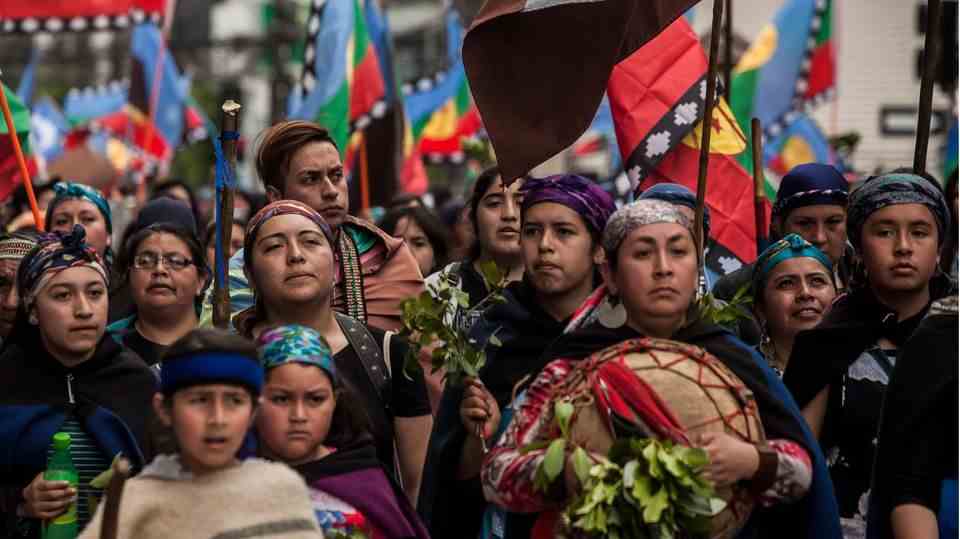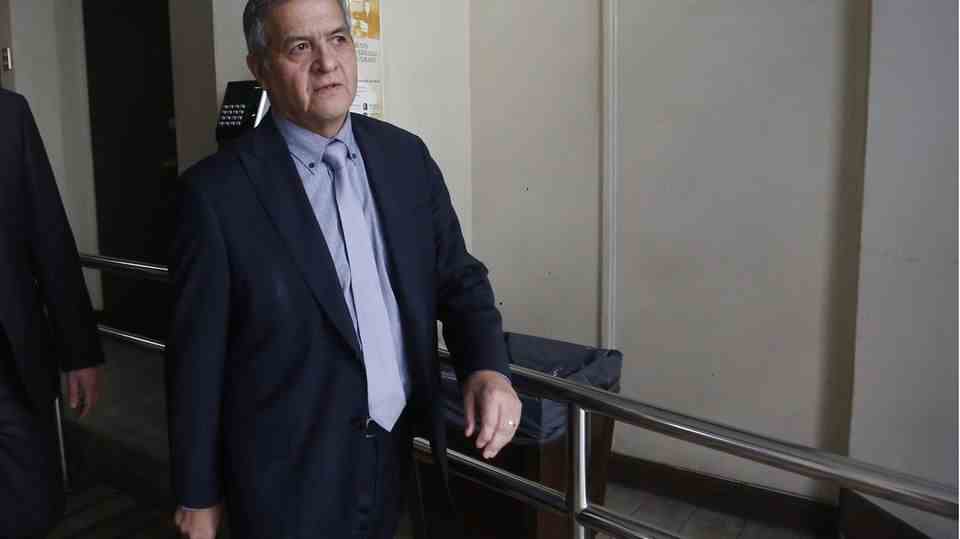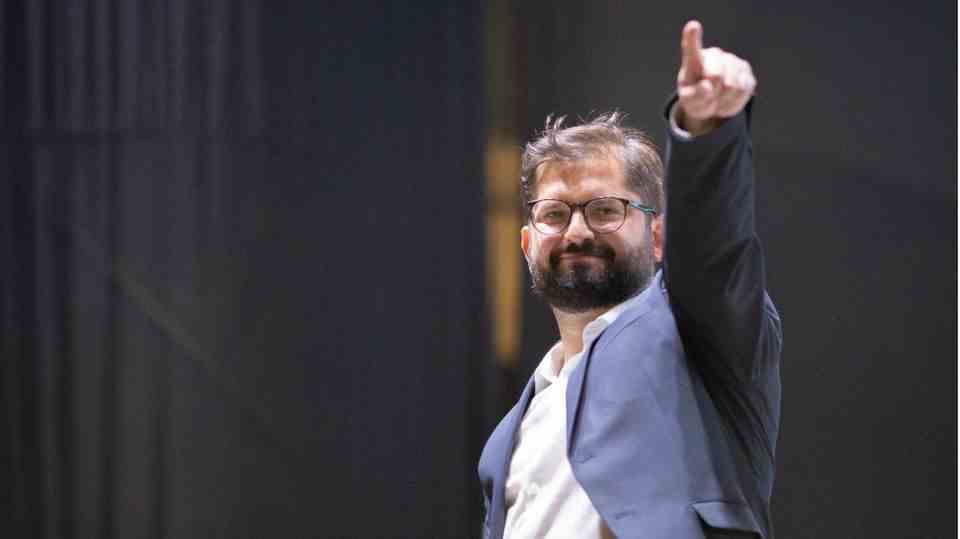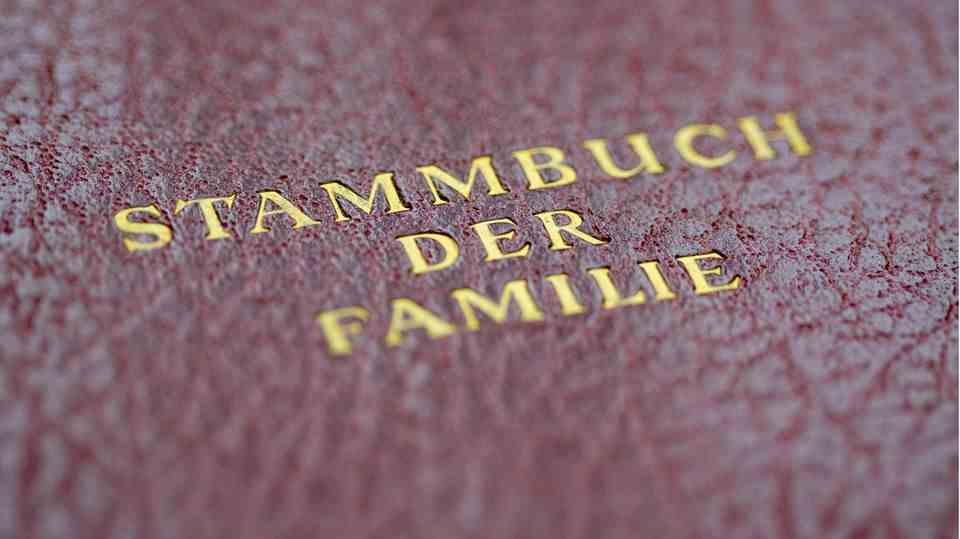During the military dictatorship in Chile, thousands of babies were separated from their mothers after birth and taken to Europe and the USA. The Chilean government estimates up to 20,000 illegal adoptions.
“I feel betrayed,” says Maria Diemar. “I’ve missed so much.” The 47-year-old lives in Sweden, but is actually from Chile. At the age of two months she was snatched from her mother and brought to Europe in a forced adoption. The family who took the newborn in at the time were told during mediation that the mother had given up the child voluntarily. The Chilean grew up in Europe with this belief. The sad truth would only come to light 40 years later.
Forced adoptions were common practice in Chile
Maria Diemar is one of thousands of babies who were separated from their mothers and illegally taken out of the country during the military dictatorship in Chile in the 1970s and 1980s. Under the rule of August Pinochet, forced adoptions became common practice. For the ruler, they were part of a national strategy to reduce poverty in the country. The children were considered “an obstacle to the country’s economic development,” explains Professor Karen Alfaro Monsalve from the Austral University in Chile in an interview with the “New York Times”.
The victims of these crimes were mainly young, poor women from rural areas who belong to the indigenous Mapuche people. According to a report by the “Guardians” were treated like second-class citizens and persecuted for a long time. In the eyes of the government, the indigenous people were an “obstacle to progress”. According to Karen Alfaro Monsalve, who has extensively researched the cases of forced adoptions, there was another motive behind it Sending the children abroad was considered a “measure to rebuild diplomatic relations.” The Chilean government made it appear as if they wanted to give the children a better life.

Members of a Mapuche community at a funeral march
© Fernando Lavoz / Picture Alliance
The forced adoptions almost always followed the same pattern. Shortly after birth, the infants were separated from their mothers for alleged examinations and were declared dead a little later. That happened to Maria Diemar, as did Camila Schwarz. “My mother was told that I had died after I was born. They lied to her,” reports the Chilean, who came to live with a family in Switzerland.Deutschlandfunk“. Tyler Graf, who grew up in the United States, was two weeks old when the hospital staff drummed into his then 26-year-old mother that her newborn had died. The parents had not been allowed to see the child again, nor would they they receive a death certificate.
Climate of fear during dictatorship in Chile
Although most mothers suspected the betrayal, the general climate of fear during the dictatorship nipped the resistance of the young women in the bud. “The entire public system was involved: hospitals, notaries, lawyers, judges,” explains Alejandro Quezada on “Deutschlandfunk”. With two other adopted children he founded the organization Chilean Adoptees Worldwide (CAW).
“The public system, which is supposed to protect people, stole children and sent them abroad,” he adds. A whole network of officials, judges, social workers and adoption agencies are said to have been involved and falsified the documents in exchange for bribes. The adoptive parents paid $6,500 to $150,000 per child, according to the Guardian. All those involved were then paid from the sums – a lucrative business. The placement agencies abroad did not question the process on the Chilean side. At that time, one acted within the legal framework, for example, a Swedish adoption center let the “Guardian” know. Both the adoptive parents and the children were convinced that the biological parents had voluntarily given their baby to someone else’s care.
Fake statements from mothers
This was also evident from the adoption papers. “She will grow up in an ideal home for her physical, mental and emotional development, which I could never give her under my circumstances,” read Maria Diemar’s documents. An alleged statement by the mother, which she did not make herself, as it later turned out.
“My adoptive mother and my father told me that my biological mother allegedly left me in the hospital and fled to Argentina,” reports Ruth Corinna Stein, who came to Bad Homburg at the age of three, in an interview with “Deutschlandfunk”. . Tyler Graf’s papers said his mother didn’t have enough money and already had other children to look after. “I have carried this bitterness with me all my life,” he says of the “New York Times“.
Up to 20,000 illegal adoptions in Chile
While a variety of gruesome crimes — murders, torture, kidnappings — are known to have taken place during Pinochet’s rule, it wasn’t until 2014 that the babies’ trafficking was slowly being exposed. Three years later, the Court of Appeal in Santiago de Chile started investigations. In the “New York Times” judge Mario Carroza confirms that the judiciary has already received 8,000 cases. However, he estimates the total number of forced adoptions at up to 20,000.

Judge Mario Carroza assumes up to 20,000 cases of illegal adoption
© Aton Chile / Imago Images
In addition, Congress established a commission of inquiry. In a detailed report of the Committee, forced adoptions are classified as “crimes against humanity”. “It’s a huge scandal that happened,” quotes “Deutschlandfunk” from a local Danish politician who is calling for the issue to be brought to the European Parliament.
Majority of children still looking
The Chilean government now has a DNA database for the parents and children to help families find each other. According to the New York Times, there have been around 500 mergers so far. “When I was in Chile, I cried with joy,” Camila Schwarz recalls when she first met her birth mother. “I didn’t know what to feel,” she says. She now maintains close contact with her South American relatives. Tyler Graf’s reunion was also emotional and loving.
Maria Diemar was able to locate her mother, but so far there has not been a meeting. The majority of adopted Chileans are still searching for their birth families. Alejandro Quezada’s organization supports them in the best possible way. The traumatic consequences left behind by the forced adoptions are also noticeable. “We can see from the people we help that 75 to 80 percent are mentally damaged in some way,” he reports on “Deutschlandfunk”.
Dark chapter in the history of Chile
Although the government has now taken up the matter, there has been criticism of the educational work done so far. The processes are running too slowly and despite the same actors who appear in the papers, no arrests have yet been made. Alejandro Quezada, on the other hand, emphasizes that this is not in CAW’s interest.
Rather, they want to make sure that something like this doesn’t happen again. Maria Diemar also agrees. “These were crimes,” she emphasizes. Illegal adoption should go down in the history books for future generations.
Sources: BBC, Camara de Disputados Chile“Deutschlandfunk“, “The Guardians“, “The New York Times“



